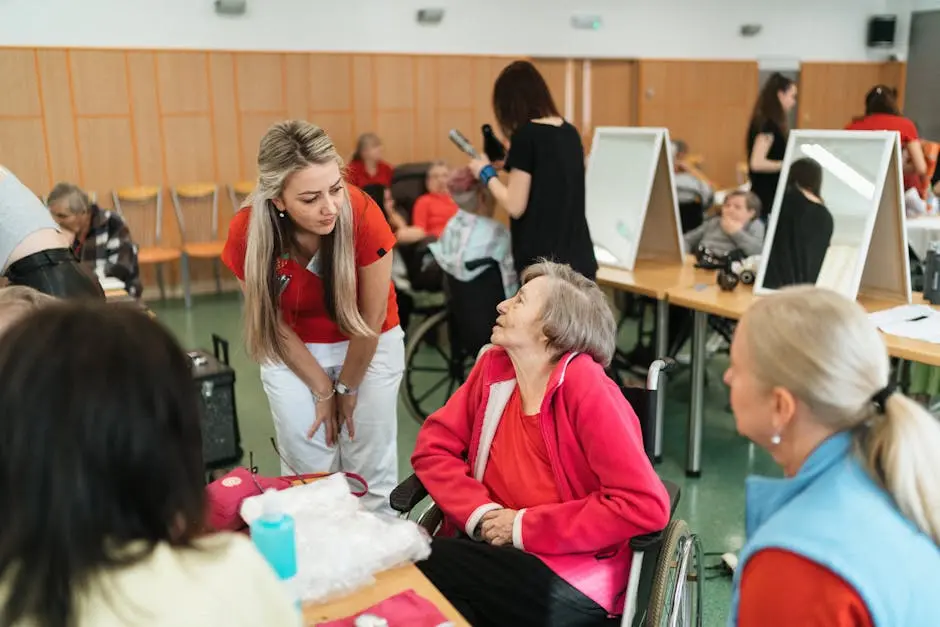7 Ways Assisted Living Communities Improve Quality of Life for Seniors
In this article, we will explore various ways these communities make a positive impact on the quality of life for older adults. From social engagement to tailored healthcare, discover how assisted living policies play a crucial role in creating a vibrant lifestyle for seniors.
Oct 15, 2024
Assisted living communities are designed to enhance the lives of seniors, providing a supportive environment that fosters independence while ensuring necessary care. In this article, we will explore various ways these communities make a positive impact on the quality of life for older adults. From social engagement to tailored healthcare, discover how assisted living policies play a crucial role in creating a vibrant lifestyle for seniors.

1. Fostering Emotional Well-Being
Assisted living communities often prioritize the emotional well-being of their residents. By creating a warm and inviting atmosphere, these facilities help seniors feel valued and connected. A supportive environment contributes to lowering feelings of anxiety and depression, which are common among older adults. Many communities offer various programs tailored to foster emotional health, including group activities and one-on-one interactions with staff members that focus on understanding each resident's needs.
The importance of companionship cannot be overstated. Whether through shared meals or scheduled events, residents have numerous chances to engage in conversations and build relationships. This socialization is vital because loneliness can have serious repercussions on both mental and physical health. Regular interaction with peers empowers seniors to express themselves, share their thoughts, and participate in activities that make them feel alive.
2. Promoting Social Connections
Social connections are essential for leading a fulfilling life, particularly for seniors. Assisted living communities facilitate opportunities for residents to build friendships and engage in community events. These interactions contribute significantly to a senior's overall happiness. Many communities organize activities like game nights, arts and crafts sessions, and outings that encourage bonding with others.
Participation in community events supports a sense of belonging, reducing feelings of isolation. Residents often form clubs based on shared interests, fostering deeper relationships. Such connections not only promote camaraderie but also spark joy and laughter, which are fundamental to a balanced life. The role of assisted living policies in promoting social engagement is invaluable, ultimately paving the way for a community where everyone feels included.
3. Personalized Health Care Services
One of the primary advantages of assisted living communities is the availability of personalized health care services. Residents benefit from tailored care plans that cater to their unique needs, ensuring they receive appropriate medical attention. This individualized approach to health care allows seniors to maintain their independence while having professional support whenever necessary.
Regular health assessments by trained staff help in monitoring any changes in a resident’s health status. This kind of proactive care means that potential issues can be addressed quickly, reducing the risk of hospital visits and enhancing overall well-being. Families can feel assured knowing their loved ones are in an environment where their health is a priority, and they are receiving the medical support they need when they need it.
4. Encouraging Physical Activity
Physical activity is crucial for seniors, and assisted living communities understand this need well. These facilities often include exercise programs designed specifically for older adults. From gentle yoga classes to dance sessions, engaging in physical activity helps seniors enhance their overall strength, balance, and coordination. The sense of accomplishment that comes from regular movement can significantly boost confidence.
Moreover, collective exercises allow residents to bond while working out. They become motivated by each other, making exercise less of a chore and more of a social event. Encouraging a routine that emphasizes physical wellness is an integral part of how assisted living policies facilitate healthy aging and positively impact residents' lives.
5. Providing Nutritious Meal Options
Nutrition plays a pivotal role in maintaining good health, especially for seniors. Assisted living communities typically offer balanced and nutritious meal options that cater to specific dietary requirements. Chefs and dietary specialists work together to ensure that meals are not only healthy but also flavorful and appealing, promoting good eating habits among residents.
Sharing meals can also be a delightful social experience. Dining with others allows residents to connect and enjoy the moment together, transforming mealtime into an engaging social activity. Additionally, having professionals who understand nutritional needs on hand means families can rest assured that their loved ones' dietary health is being well-managed, contributing to overall quality of life.
6. Ensuring Safety and Security
In any living situation, especially for seniors, safety and security are paramount. Assisted living communities prioritize the well-being of their residents by ensuring the environment is as secure as possible. Features like emergency call systems, secure entrances, and trained staff available round-the-clock offer peace of mind. Families can relax knowing that their loved ones are in a safe environment.
Furthermore, regular safety drills and training help keep both staff and residents prepared for any emergencies. This proactive approach to safety ensures that everyone knows precisely what to do should any situation arise. Knowing that there is a dedicated team focused on creating a protective atmosphere enhances the quality of life for seniors, allowing them to focus on enjoying their surroundings.
7. Offering Opportunities for Lifelong Learning
Lifelong learning is an important aspect of maintaining mental acuity and personal growth. Many assisted living communities offer various programs aimed at encouraging residents to expand their skills and knowledge. Whether through art classes, book clubs, or computer courses, these opportunities keep residents engaged mentally and creatively.
Engagement in learning activities not only combats cognitive decline but also fosters a sense of purpose. Residents often find joy in exploring new subjects, sometimes uncovering hidden talents along the way. The incorporation of learning initiatives aligns seamlessly with assisted living policies that emphasize the holistic well-being of seniors, contributing to a fulfilling daily experience.
stay in the loop


